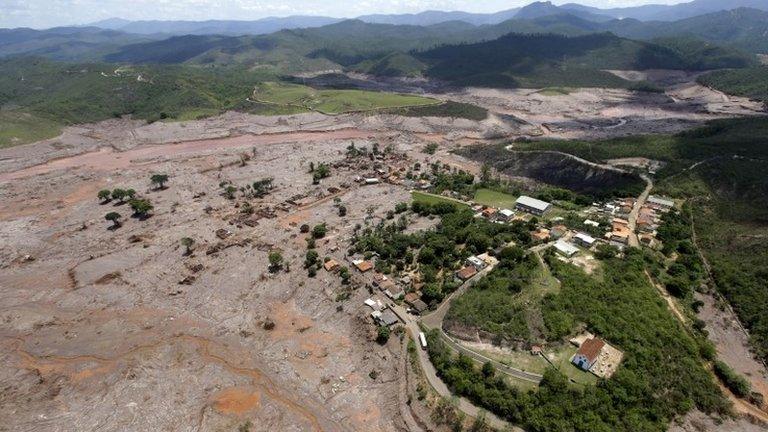Brazil dam collapse: Judge blocks BHP Billiton and Vale assets
- Published
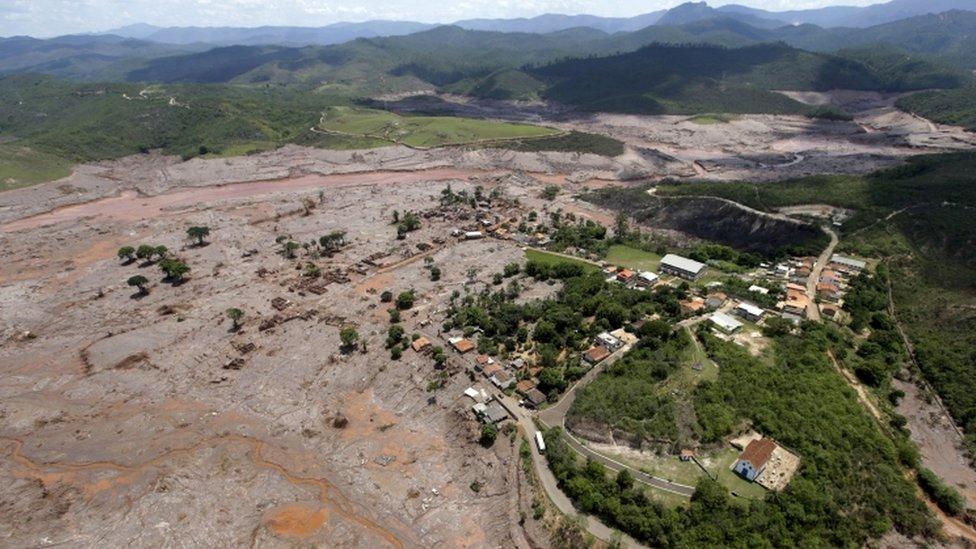
The toxic mud destroyed the nearby village of Bento Rodrigues, where some 600 people lived
A federal judge in Brazil has blocked the assets of mining giants BHP Billiton and Vale in the country over the deadly collapse of a dam.
The joint-venture company they own, Samarco, does not have enough resources to cover the potential damages, estimated at 20.2bn reais ($5.2bn; £3.4bn), the judge ruled.
Samarco owned the dam, which held back waste water from iron ore mining.
It burst last month, flooding a vast area and killing at least 13 people.
Anglo-Australian company BHP Billiton and Vale, from Brazil, said they had not been officially notified.
Judge Marcelo Aguiar Machado's ruling was published on Friday.
The two companies will also have to implement "immediate damage-mitigating environmental measures" or they will be liable to a daily fine of 150m reais ($38m; £25m), ruled Judge Machado.
'Not a natural disaster'
On 28 November the Brazilian government filed a lawsuit against Samarco for the environmental damage caused by the accident.
Environment Minister Izabella Teixeira said the accident in the south-eastern state of Minas Gerais had "a huge impact from an environmental point of view".
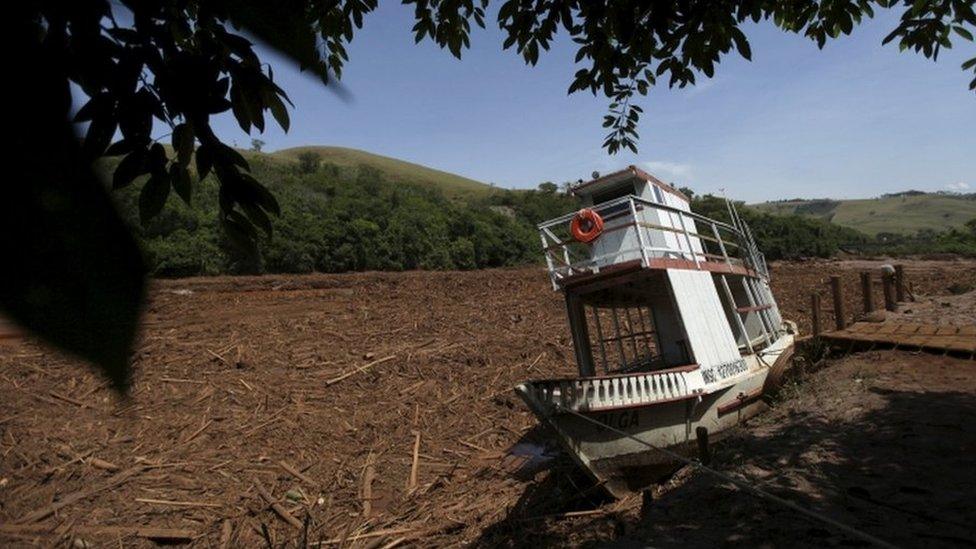
The Brazilian authorities are preparing a more detailed study of the environmental impact of the accident
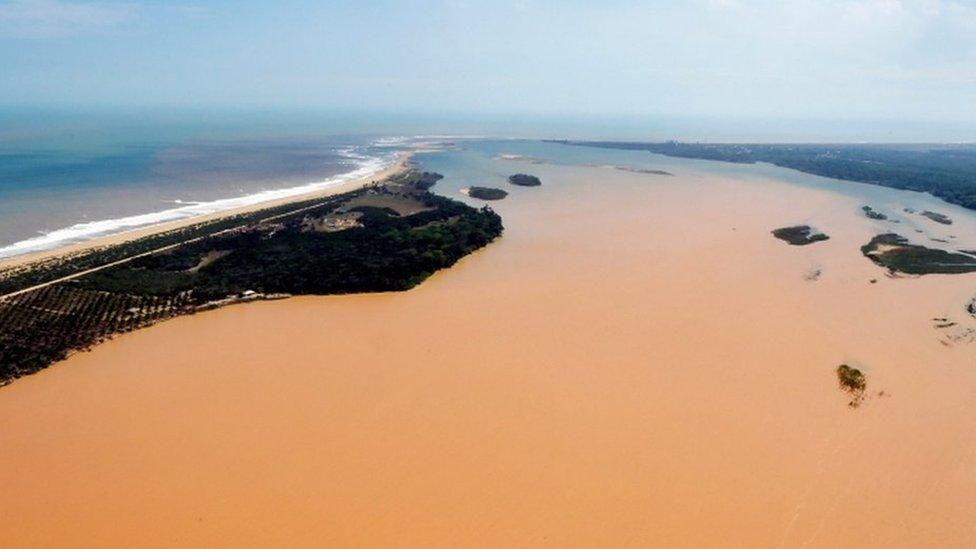
The toxic mud reached the Atlantic Ocean, about 500km (310 miles) away from the area where the dam collapsed
The village of Bento Rodrigues was totally destroyed and the toxic mud generated by the 5 November dam collapse polluted drinking water over a vast area.
The money will be used to compensate the victims and help repair the environment.
"It is not a natural disaster, it is a disaster prompted by economic activity, but of a magnitude equivalent to those disasters created by forces of nature," said Ms Teixeira when the lawsuit was filed.
About 500km (310 miles) of the Rio Doce - one of Brazil's most important rivers - will have to be dredged in parts, vegetation replanted and fresh-water springs cleared, she said.
Less than a week after the accident, Samarco had its mining licence suspended.
It also agreed to pay 1bn reais (£170m; $260m) temporary compensation to the victims.
- Published30 November 2015

- Published28 November 2015
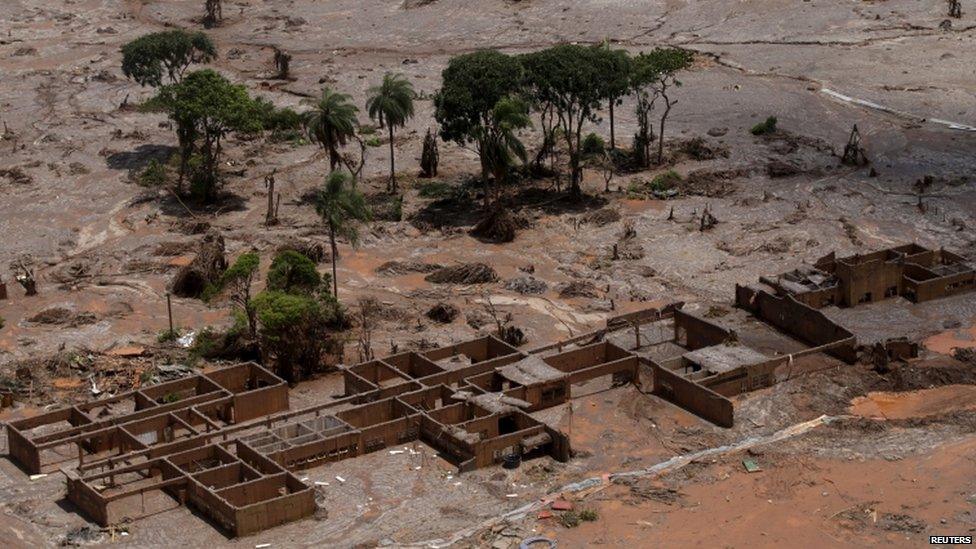
- Published25 November 2015
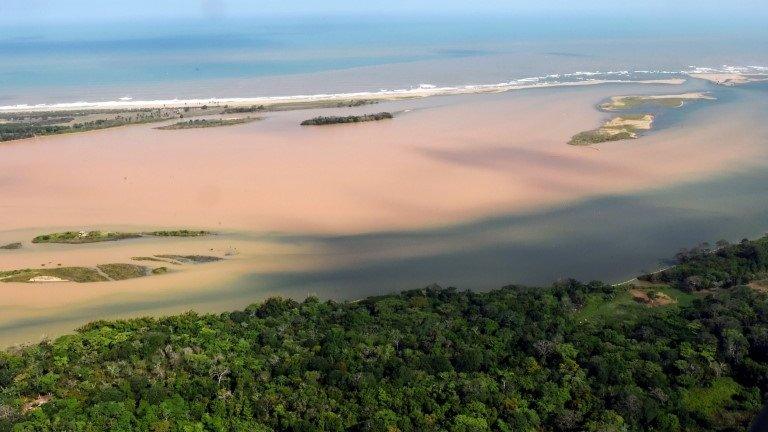
- Published17 November 2015
